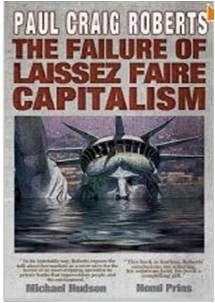Remembering History
Comment to Tim Murray and Tom Butler
by Lisi Krall
It is worthwhile to recall history as we ponder Tim Murray’s proposition that we direct our “energy into stopping economic growth” rather than saving “the environment piecemeal” through conservation efforts. It’s enlightening to go back to Thomas Jefferson just to gain some perspective on what happened when the market economy was fertilized with the industrial revolution. Thomas Jefferson, writing in preindustrial America, thought one of the attributes of our nation that would enable us to “become happy and prosperous people” was the fact that we possessed “a chosen country, with room enough for our descendants to the hundredth and thousandth generation.” Do the math, because it gives you some perspective on Jefferson’s world. Apparently Jefferson thought we had a big enough unsettled country for agricultural expansion to take place for 20,000 years. Clearly, Jefferson didn’t anticipate what was coming. The pace and reach of economic expansion were beyond anything he could have imagined as he looked westward from Monticello at the turn of the 19th century. Yet little more than a century after Jefferson wrote these words the country had become an industrial giant and most of the land had been given over to private ownership.
It was this pace of economic expansion coupled with a mostly wild country that gave rise to the conservation movement in the United States. It quickly became abundantly clear that in the wake of our great economic experiment, nothing would be sacred and there was much to lose. In the United States, the conservation movement literally grew out of the rapacious speed and reach of 19th and 20th century capitalism and in this sense was very organic. The preservation arm of the conservation movement became manifest in a wilderness ethos. The wilderness ethos spoke to something foreboding about our so- called economic progress, the fact that we clearly had the capacity to put an end to the magic and pulse of a mostly untrammeled country in no short order. The conservation movement, especially the preservation branch of that movement, helped us to think more critically about the meaning of progress and the place of humans on the earth. Preservation was a cultural response to the most egregious impulses of capitalism. It was a cultural meditation and institutional grappling with what a healthy human ecology should look like and when it was necessary to stop so-called economic progress for the sake of something more important. It led John Collier to comment:
The profit-motive finds no use in Wilderness; and Wilderness can perish utterly in its remote silences, without bringing the profit-seeking temple down in ruin on men’s heads. Wilderness therefore, as a symbol of all in the human aspiration and caring which holds itself out from the profit-pursuing imperative, can safely be crushed down. One after another of the absolutism of profit-pursuit has been somewhat tamed, somewhat restrained, during the century behind us. There remains Wilderness, as a fact and an aspiration: Wilderness, which by its very definition says to the money-profit motive: You shall not enter here.
We might ask ourselves whether we would have the same impulse to stop economic growth were it not for all the preservation and conservation that has heretofore taken place.
I don’t think there’s any question that the form the preservation movement has taken has been historically conditioned. Preservation has functioned on the basis of setting aside wild places and otherwise leaving the economic engine of capitalism in place. No one would disagree with the fact that we’ve reached a different historical moment where those involved in preservation and conservation need to be more vocal about ending an economic arrangement based on growth. In fact, the limits to this historically specific preservation strategy have been understood for quite some time. In the mid 20th century Aldo Leopold makes a “plea for the preservation of some tag-ends of wilderness, as museum pieces, for the edification of those who may one day wish to see, feel, or study the origins of their cultural inheritance.” Clearly he understood the limitations of this approach. Yet it is one thing to acknowledge this and another to claim, as Murray does, that if our energy “to save the environment piecemeal had been put into lobbying for a steady state economy, development pressure everywhere would have ceased, and habitat would be safe everywhere.” Tom Butler is right, “there is no way to prove or disprove this opinion,” but I would offer that history tells us that preservation has made a remarkable difference, not only in the integrity of that which has been preserved, but also in extending a cultural ‘habit of thought’ and cultivating a wilderness ethos.
Tim Murray is correct in his sense that if we can’t stop the growth machine we are going to lose the war. But as Tom Butler points out, what we preserve can at least provide “the seedbed of recovery for wildness to begin the long dance of evolutionary flowering again after this dark episode of human-caused extinction.” And ending our efforts to preserve and conserve would be, as Butler also tells us, “an ethical breach with our fellow members of the biotic community.” We stand a much better chance of winning the war by our preservation and conservation efforts, by retaining something of the pulse of the wild places on earth. In the shadow of these places we continue to cultivate an awareness of limits and can at least measure the extent of our loss. In a world where the when-to- stop rule is vague, these are not insignificant contributions to changing our path.
I would also add that we seem to have made little headway in our economic discourse on the issue of ending growth. I doubt very seriously this has had anything to do with the time and energy spent on conservation and preservation. In fact, it’s likely that the efforts at preservation and conservation have had a more profound influence on our thinking about the limits to economic expansion than anything else has. Rather than target our frustration about the lack of movement on the no-growth front at the conservation movement, we might do better to analyze why so little progress has distilled from our no-growth rhetoric.
I have no doubt the historical moment has arrived where the preservation movement needs to speak out more explicitly about the problem of economic growth in an effort to save what is wild. But it is equally important that those who speak out against economic growth bring the loss of the wild and the need for a healthy human ecology to a central and pivotal focus in their discussions of scale. No-growth discussions about optimal scale don’t elaborate on how much of what is wild should remain wild, instead, these discussions deal in the vague world of costs and benefits and promoting development without growth. These discussions evaluate whether we’ve gone beyond an optimal scale when “the cost to all of us of displacing the Earth’s ecosystems begin to exceed the value of the extra wealth produced” or when the benefits of growth are overshadowed by the costs. Without greater clarity on the true meaning of development and optimal scale we no-growth advocates might succeed in orchestrating a perfectly domesticated steady-state world, where we are all half crazy for want of a diverse and magical external world to resonate with our genome and our psyche.
Lisi Krall is a professor of economics at the State University of New York at Cortland, a member of CASSE’s executive board, and the author of Proving Up: Domesticating Land in U.S. History.







Well, after a “butterfly” flight over this text, I think that speaking about history, being fundamental in ecological economics, would go beyond what West understand as “history”, and beyond Eurocentrism. What about the freedom of commerce we see in so many countries from the South? Why specialist almost show a blindspot in relation to southern countries and cultures? A global world include a multiple array of economics systems. To continue ignoring the usefulness of many of the ways of life from southern countries, would be suicidal for Europe thoughts… thanks…
No disagreement here. Only that the existing components related to steady state economics are not so difficult to discern, has been my steady drumbeat in thread posts here.
I was just reading about the EU´s plan to promote a 95% recycling of automobile components by 2015. Pretty sweet plan. Here´s a link to a 2003 article on the subject: http://www.tms.org/pubs/journals/jom/0308/kanari-0308.html
Concerning McDonagh Braungart DC´s Cradle to Cradle certification, here is a quote:
“Cradle to Cradle® Certification is a multi-attribute eco-label that assesses a product’s safety to humans and the environment and design for future life cycles. The program provides guidelines to help businesses implement the Cradle to Cradle framework, which focuses on using safe materials that can be disassembled and recycled as technical nutrients or composted as biological nutrients.”
Besides their book, their 1998 Atlantic article, and the documentary by the same name, The Next Industrial Revolution, demonstrate some excellent examples of piecemeal applications of green technological development.
Certainly the topic of philosophies like Voluntary Simplicity and that of Colin Beavan´s film, No Impact Man, are also relevant here.
I fear that Lisa Krall´s vision of half-crazy no-growth advocates is only half the problem. In reality, the real world disasters will complete the rest of the unpleasant consequences of prescriptions left to abstraction. Still, some of us no-growth advocates are solidly grounded in discussing existing examples and are biding our time until we get plugged in and some kind of wretched “elbow grease” acceptability. By the way, it occurs to me that Mr. Daly does mention Greenpeace in his 1996 book.
Lisa brings excellent insight, and yes, let’s change the words from ‘no growth’ to ‘stabilized civilization’. We work for a stable civilization and stasis. Either we do it by our own hand or Mother Nature does it by her hand–and her hand proves brutal, benign and crushing. We will not find a ‘nice’ way out of this fandango! One of our trump cards that must be played: stop all immigration into the USA and Canada to stop population growth since both countries enjoy a 2.0 children per female. With the human race adding 80 million annually, there is no end to the line unless we stop allowing the line to bleed into North America. At some point, they must come to terms with rampant fecundity. Either we force third world countries’ hands or they will continue their addition of another 2 to 3 billion. Take your pick! They are screwed and we are screwed. Better our two civilization lead rather than become victims. And, the wilderness, well, look at it this way:
“Upwards of two hundred species.. mostly of the large, slow-breeding variety.. are becoming extinct here every day because more and more of the earth’s carrying capacity is systematically being converted into human carrying capacity. These species are being burnt out, starved out, and squeezed out of existence.. thanks to technologies that most people, I’m afraid, think of as technologies of peace. I hope it will not be too long before the technologies that support our population explosion begin to be perceived as no less hazardous to the future of life on this planet than the endless production of radioactive wastes.” Daniel Quinn
http://journalofcosmology.com/Extinction104.html
“…our bigger-and-better society is now like a hypochondriac, so obsessed with its own economic health as to have lost the ability to remain healthy.
Perhaps a shift of values can be achieved by reappraising things unnatural, tame and confined in terms of being natural,wild, and free .”
Aldo Leopold :’Sand County Almanac’.
His words summarise what is needed : to continue to preserve and to conserve and to show how a steady state economy should embrace these efforts ; we need to become more inclusive in our efforts : green activists;population campaigners; growth-busters; conservationists.
“stop all immigration into the USA and Canada to”
How?
The focus on immigration is an excellent example of tunnel vision and a philosophy of accounting which externalizes costs . US and other corporations have lead the “growth” vision through their compulsive profit maximizing ideology, and by rampaging in societies like Mexico´s, many African countries, and around the world, have dispossessed and destabilized small farmers and others who then emigrate.
Including nature in our accounting and economic philosophies is only part of the challenge. The employee-ownership and socially responsible co-operative business model as a basis for social democratic policies European style can make a difference. Fair Trade certification has opened a living and breathing alternative to the exploitive corporate market model. I like to refer to Michael Conroy´s Branded and Jared Diamond´s Collapse, but FT itself is discussed dynamically in a range of books already, such as Dan Jaffee´s Brewing Justice and Nicholls and Opal´s Fair Trade.
The refreshing views of Aldo Leopold can be intertwined majestically with those of John Muir and even the late Chico Mendes of Brazil to recall Doc Daly´s earlier forays into Whole Cost Accounting economic indicators. Enough FT and co-ops in Mexico, from Chiapas to Cancun, would make Mexico like some version of the Mondragon Co-op Corp. of Spain and the Buerger Windparks and Naturkosten natural food stores of Germany; that would stop emigration to the US and Canada, and reverse the direction. In fact, many would be amazed at the extent of the co-op business model in the US, Canada, and around the world already. According to the ICA- international co-operative organization, the total revenue is almost a trillion dollars. In Europe, co-op banks serve 20% of the market already. The UK co-op bank in particular is heavily involved in initiatives like promoting solar panels. See ShoreBank Pacific for a great eco bank model in the US.
Good points, Mark, except I would add all of central America to your model. :-)
But then again, it’s easy to say Mexico should be a land of coops, and another one to tell how. How do you propose to convert the land of the druglords into the land of the coops?
You seem to forget that American business profits by the masses flooding over the border and undercutting local wages. I mean, look at them… they can’t even say clearly to Mubarak to get the F out of Egypt. In fact, they have been propping him up all these years. You think they’d say yes to your vision?
Tim Murray presents us with a false choice. If hyper growth is to stop and awareness of our connection and dependence on the natural world is to increase it will necessarily involve a deep shift of awareness, values and priorities. The denialism we see with Climate and Peak Oil is not due to poor science but rather a deep unwillingness to give up a way of life that has given much to many. To shift this will require an equally deep evolution and those who are most likely to make this shift are those who have first embraced environmental awareness and engagement. It is clear that environmentalists are winning small battles and losing the larger war, but the answer is not to ask them to stop battling but instead to broaden their awareness of the underlying drivers of environmental destruction and focus their passion and energy on helping to devise and adopt powerful societal, economic and environmental solutions .
Lisi,
Thanks for your excellent riposte. I should have strangled you at the De-growth Conference when I had the chance! Seriously though, I would like to comment on a few points.
You ask if, without park conservation, we would feel the impulse to stop economic growth. Actually, if the testimony of fellow boomers with a conservation ethic is a gauge, the constituency for nature preservation did not arise from a visit to a national or provincial park, but was built in our childhood in local woodlots, bogs, creeks and ponds within our suburban environment, now filled in and built up. Frogs, reptiles, racoons, coyotes, deer, and in my case, bears and cougars, were close at hand. Kids of my generation spent most of our leisure moments outdoors, and undeveloped lots, unmolested forests and creeks offered themselves as our playground. As much as we admire the majesty of our flagship provincial and national parks, they were not the first window to nature for those of us who later formed the backbone of the conservation and environmental movement. Sadly, urban growth has denied the digital generation the opportunities we had, and nature has been replaced by the virtual reality of video games and tech toys. This is a fact noted by such green luminaries as Dr. David Suzuki and Robert Bateman. No wonder the discussion about the costs of economic growth is focused on a cost/benefit analysis, as you and writers like Paul Kingsnorth have pointed out.
I am advised not to target conservationists for their lack of discourse or attention on matters of growth. However, we must realize that in Canada at least, they are missing in action where nature is taking its greatest beating—at the perimeter of our growing urban centres where most of the species-at-risk are found. Some rally against “sprawl” but none raise a clarion call against growth—the root cause. Instead we are treated to the oxymoronic palliative of “smart growth”, a phrase concocted to kill two birds with one stone. It is both a sop to anti-growth sentiment and a reassurance to corporate donors like the Royal Bank of Canada that green NGOs are not biting the hand that feeds them. Viewed objectively these donations can be perceived as hush money to purchase silence on development where it matters—in our backyard. Some developers like Urbandale Construction and Richcraft simply purchase forest lots like Beaver Pond in Kanata (now part of the City of Ottawa, Ontario) and sit on them for a decade, waiting to develop them in good time, without bothering to pacify potential opposition in advance. But land bankers like the Walton International Group employ a more clever approach. They purchase raw agricultural land outside cities like Calgary or Edmonton and await its rezoning to residential or commercial use, which typically doubles or triples its value. And civic politicians who promote this kind of rezoning by some coincidence find that their campaign war chests are overflowing from donations that are not tracked by any disclosure requirements. Then, to cover their flanks, Walton buys ecological dispensation from Nature Conservancy by making a handsome high-profile donation to the cause of purchasing land that is very distant from the urban killing zone. This is now standard procedure in the brazen partnership of Green Inc. and the corporations they collude with, as Christine Macdonald and the journalists of the Washington Post, among a few others, have ably documented.
Corporations came to an important realization in the early 90s. The best way to fight the environmental movement is to fund it. And now we are seeing corporate foundations manage dissent with a carrot and stick, offering funding for those greens who pursue inconsequential paths, and de-funding those who get too close to threatening their bottom line. It works. They have got the best environmental movement that money can buy. Spare these collaborators from blame? I would hang them from a lamp post if I could.
Critics have so far misunderstood my motives, and perhaps my rhetorical approach has contributed to this misunderstanding. In fighting growth I am not abandoning park preservation. I am merely fighting for it on a broader field of action. Sometimes soldiers are pulled out of a battle to be re-deployed on another more crucial front. The greatest breach with our fellow members of the biotic community –in my view—is to lose the war, whether it is by shifting focus or changing tactics or standing pat with our present conservation strategy. And as I remarked in a previous comment to Tom, when you are losing a war you must pause to ask why. Is a strategic re-think necessary?
My essay was not a considered piece meticulously presented but a rant. An emotional outpouring designed to vent frustration with our ongoing defeat and to pose a stark alternative as a talking point. Debates are typically framed by the presentation of false dichotomies. Either or. Yeah or nay. It is from these polarities that more holistic conclusions are drawn. If my rant and the discussion that followed it encouraged at least some conservationists to budget some of their time to thinking about and promoting the concept of a steady-state economy, then I am contented.
Tim Murray
PS a more detailed argument can be found at:
http://www.onlineopinion.com.au/view.asp?article=10200&page=0